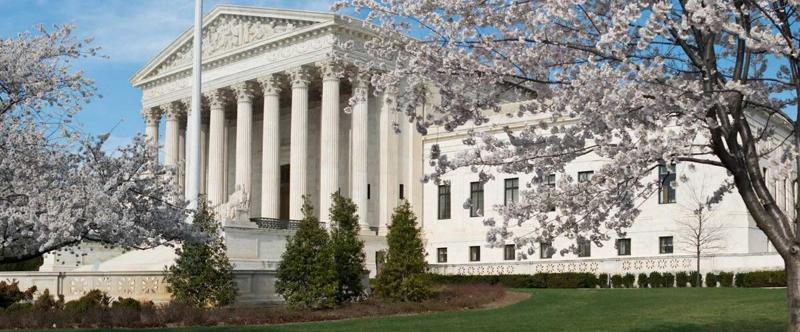A unanimous ruling by the U.S. Supreme Court may pave the way for challenges to a federal deportation plan under the incoming Trump administration to be defeated.
The ruling was issued in a “sham marriage” case after an American citizen applied with the U.S. Citizenship and Immigration Services (USCIS) to obtain a visa for her noncitizen Palestinian husband to receive permanent legal residence status.
Under the law, USCIS “shall … approve” a visa petition if it’s been determined “that the facts stated in the petition are true” and the noncitizen is the petitioner’s spouse. If the noncitizen previously sought or received an immigration benefit “by reason of a marriage determined by the Attorney General to have been entered into for the purpose of evading the immigration laws” – known as the sham-marriage bar – USCIS is required to deny it.
The petition was initially approved but two years later was revoked because USCIS argued there was “evidence suggesting that her husband had previously entered into a marriage for the purpose of evading immigration laws,” which the couple denied.
The Board of Immigration Appeals affirmed the revocation, affirming that USCIS’s determination that the husband had entered into a prior sham marriage that would have prevented the initial visa approval.
The couple sued, a federal district court dismissed the case, arguing federal courts don’t have jurisdiction over certain discretionary agency decisions. The couple appealed and the Eleventh Circuit affirmed the lower court’s decision. The case was appealed to the Supreme Court, which in a 9-0 vote affirmed both lower court rulings.
“Section 1155 is a quintessential grant of discretion,” Justice Ketanji Brown Jackson, a President Joe Biden appointee, wrote in the decision. “The Secretary ‘may’ revoke a previously approved visa petition ‘at any time’ for what the Secretary deems ‘good and sufficient cause.’ Congress did not impose specific criteria or conditions limiting this authority, nor did it prescribe how or when the Secretary must act.”
The ruling was issued after the Ninth Circuit Court of Appeals ruled earlier this month that the federal government has the authority to deport illegal foreign nationals over the objection of local authorities, The Center Square reported.
In June, the Supreme Court also ruled in favor of federal deportation policies in three consolidated cases on appeal before the Fifth and Ninth circuits, where the courts issued conflicting rulings.
The lawsuits were brought by illegal foreign nationals deemed “inadmissible” under federal law and given Notice to Appear (NTA) documents stating they must appear before an immigration court at a future date and time. Each of the plaintiffs didn’t show up to their hearings, and federal immigration judges ordered their removal in absentia in accordance with federal law established by Congress.
The illegal foreign nationals sued, demanded their removal orders be rescinded, claimed they didn’t receive proper written notification, challenged the definitions of the word “change” in the order they received, and made other technical arguments.
The petitioners, illegal border crossers from El Salvador, India and Mexico, demanded they had rights to stay despite court orders requiring their deportation. In a 5-4 ruling, the Supreme Court disagreed, ruling against them.
The ruling established precedent for potential future cases that could be brought after the Biden administration began issuing NTAs with court dates three to four years in the future, The Center Square first reported. The ruling could also have a bearing on roughly 200,000 deportation cases that were thrown out by immigration judges because the Department of Homeland Security didn’t file paperwork with the courts in time for scheduled hearings.
The rulings are likely to have the most impact on those who attempt to fight a deportation plan by the incoming Trump administration to reverse a policy through which the Biden administration released millions of illegal foreign nationals into the country contrary to federal law.







